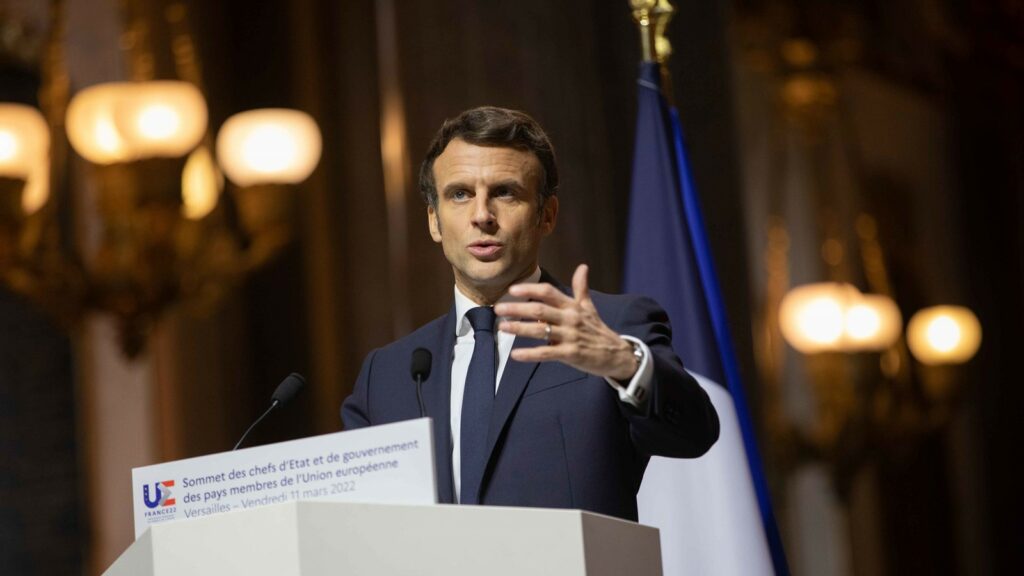The war in Ukraine has once again raised the old question, who really leads Europe? This was a question that supposedly preoccupied former US Secretary of State, Henry Kissinger. For decades it was widely believed that he said, “Who do I call, when I want to call Europe?”
Apparently, it was all just an urban myth. He never said that, nor did he seek, in vain, for Europe’s telephone number. What is not in doubt, is that Kissinger knew, all along, exactly who to call in Europe. At that time, at least in the EEC, Europe’s leader was unquestionably the President of France.
This was clearly shown in the lead up to the Nixon-Pompidou meeting in Reykjavik, in June ’73. Kissinger, then US National Security Advisor, came up with a plan to force the EEC into making trade concessions to the US, by threatening to withdraw US troops from Germany. At the height of the Cold War this would have left Europe vulnerable to domination by the USSR. President Pompidou pointed out that security issues between the US and Europe were a matter for NATO, while trade issues were a matter for the EEC. Since the membership of both organisations did not overlap, as one EEC Member State, Ireland, was not in NATO, it was not possible to put trade and security matters on the same agenda. Kissinger’s plan failed.
When the Cold War ended and German reunification was consolidated, Germany’s rising economic power brought about an unofficial partnership, between Germany and France, to plug the gap in Europe’s leadership. The creation of the EU’s post of High Representative for Foreign Affairs has also helped and all four holders of this position have had a positive impact. Nevertheless, they are less influential, on defence issues, than the unofficial Franco-German partnership. Nor has the EU Parliament, which has about as much weight in this area, as an Irish County Council has on Irish defence policy.
In her final years as German Chancellor, Angela Merkel was the dominant leader, but it remains to be seen if, or when, her successor, Olaf Scholz, will achieve the same stature in Europe. The mantle of this unofficial leadership now rests on the shoulders of French President Emmanuel Macron. His political future will be decided by the French people during the coming Presidential election next month.
Napoleon once said that the quality he looked for most in his generals was luck. Macron certainly seems to have that. Moreover, he has learned to grow in office, to be pragmatic and to rein in his ultra pro federalist views on Europe.
Currently France has the rotating EU Presidency, with the positive publicity it should generate, for Macron. In addition, the Presidency Programme focusses attention on many issues that resonate favourably with the French public. With the UK gone from the EU, he has also a clear run to pursue enhanced integration of the EU, in particular, in the defence area.
Choosing the right European defence model
Macron is a strong proponent of the “European Army” concept but is unlikely to push for that at this stage, notwithstanding the shift of EU public opinion arising out of the current Russia-Ukraine War. Moreover, this “European Army” concept is just one possible option for European defence and is not likely to be acceptable to the majority of EU Member States. There are other options. In particular, we need to know what form of European ‘unity’ ultimately emerges, whether federalist or confederalist, before deciding which defence model best suits Europe’s needs.
The main decision to be taken during the upcoming EU Defence meeting on Mar 21st is the approval of the EU Strategic Compass. This is essentially a White Paper for EU Defence, which will lay out a common strategic vision for EU security and Defence. It was expected to set down achievable and practical objectives along with a timeline. The Strategic compass is planned to be a barometer for both the Member States, and the bloc’s ambitions, to make the EU a leading provider of security for its citizens.
However, the Presidency draft has had to be drastically revised since Russia’s invasion of Ukraine on the 24th of February. The EU’s Strategic Compass has to move quickly from being a neat conceptual set of long-term guidelines, to being a practical document that addresses Member States’ concerns about the current state of European security.
Concrete proposals on increasing EU defence spending need to be put on the table now. If EU solidarity means anything, there should ultimately be a level playing field on defence spending. Adopting NATO’s 2% target of GDP on defence spending, would be a good start. Also, for Member States that currently are spending less than the EU average of 1.2% of GDP, there could be an EU funded programme to help them converge initially to this average level, with specified criteria.
Would Macron persuade the other EU leaders to put this on the agenda? Such a strong bold proposal requires leadership. Watching him on Thursday, greeting EU Leaders on the footsteps of the Palais de Versailles, evoking the imagery of the Sun King himself, I thought maybe, just maybe, Europe has a real leader at last.
Finally, I did consider contacting Henry K, to confirm his views on European leadership, but unfortunately, I do not have his telephone number...


